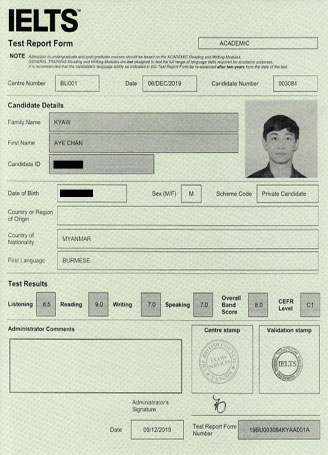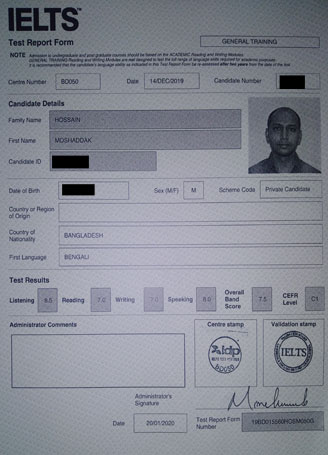Top 8 English Pronunciation Problems for Japanese Speakers (and how to fix them!)
If you are a native Japanese Speaker, you may be facing a frustrating issue on a daily basis. You say something to someone, and they say…
– ‘I beg your pardon?’
– ‘Say that again?’
– ‘Pardon?’
– ‘Sorry?’
Or they just stand there staring at you. If this situation is familiar, then your pronunciation might need some work.
The Top 8 English Pronunciation Problems for Japanese Speakers
There are some sounds in English that are more difficult for Japanese Speakers to pronounce properly. Here are some typical pronunciation errors Japanese Speakers tend to make.
1. Confusing consonants ‘l’ & ‘r’
Sometimes native Japanese speakers say ‘r’ instead of ‘l’.
Check: do you say ‘comprete’ instead of ‘complete’?
Listen to the correct pronunciation here.
2. Pronouncing consonants ‘f’ and ‘v’ incorrectly
Sometimes Japanese speakers say ‘p’ instead of ‘f’, such as ‘preper’ instead of ‘prefer’.
Listen to the correct pronunciation here.
Another common issue is using ‘b’ instead of ‘v’, for instance saying ‘bideo’ instead of ‘video’.
Listen to the correct pronunciation here.
3. Pronouncing the consonant ‘th’ incorrectly
Sometimes speakers of Japanese might say ‘sink’ instead of ‘think’, or ‘sick’ instead of ‘thick’. That changes the meaning of the word entirely and the listener would struggle to understand them.
Listen to the correct pronunciation here.
4. Vowel /oʊ/ like in ‘note’
If you pronounce ‘note’ more like ‘not’, that’s incorrect – it needs to be pronounced like ‘nowt’.
Listen to the correct pronunciation here.
The word ‘most’ has the same sound /oʊ/.
Listen to the correct pronunciation here.
5. Vowel ‘er’ /ɜː/ like in ‘hurt’
If your ‘hurt’ sounds more like ‘heart’, and ‘firm’ more like ‘farm’, that is incorrect.
Listen here to both incorrect and correct pronunciation, and fix your own, if you need to (scroll down to the blue box to listen).
6. Vowel /æ/ like in ‘hat’
If you say ‘hat’ but it sounds like ‘hut’, or ‘back’ sounds like ‘buck’, that is another problem.
Go here to listen to the correct and incorrect pronunciation, and you will see the difference (scroll down to the blue box to listen).
7. Word stress
Each multi-syllable word in English has one stressed syllable. In the word ‘rePORT’ the stress is on ‘PORT’, so you should say it in higher pitch and put more emphasis on it. When you don’t, it makes your word stress and rhythm flatter than a native speaker’s.
8. Weak vowels
Japanese speakers pronounce every vowel in English the same way – but some vowels should be pronounced differently. A good example of a weak vowel is ‘o’ in ‘today’ – it should be pronounced more like ‘uh’ rather than ‘o’. Listen to the correct pronunciation here.
How to fix Japanese Speakers’ pronunciation problems
One thing I learnt from Georgie Harding, the founder of SpeechActive and experienced speech pathologist, is this:
“Your journey to a better pronunciation starts with awareness.”
You need to become aware of problems in your pronunciation first, and then you can start fixing them. Georgie has worked with hundreds of Japanese speakers and created a very useful resource to help you achieve improvement quickly and easily.
What you need to do is:
1. Go here and read through the pronunciation problems checklist.
2. Scroll down to grey and blue boxes.
3. Read about the problem and how to fix it in a grey box.
4. Listen to the Japanese speaker in the blue box. Do you hear the problem sound?
5. Listen to the native English speaker in the blue box. Do you notice the difference in pronunciation?
6. Record your speech using the voice recorder on the web page, and play to listen. Are you making the sound correctly?
These are the steps that will help you fix your pronunciation. The problem sounds may be there now, but you will learn to hear them, and to make them correctly. Regular practice will help you get very close to a native English speaker’s pronunciation.
If you need help with your pronunciation, Georgie is the best person to talk to (and you can contact her here). She worked with so many Japanese professionals and students, living in the UK, the US, Australia and of course Japan, and she has a pronunciation course designed specifically for Japanese speakers. So if you need some English pronunciation training, or accent reduction, Georgie will definitely help you speak English more clearly. Read more about her pronunciation course for Japanese speakers here.
Special offer for IELTS-Blog.com visitors
If you decide to enrol in any of Georgie’s pronunciation courses, we got you a special 30% discount, available exclusively from IELTS-Blog.com:
IELTSblogsave30%
Just to clarify – this discount is for ALL our readers to enjoy (not just Japanese Speakers), and will work for any pronunciation courses on SpeechActive website.
Enter this code at checkout on SpeechActive website, and use the savings to reward yourself for making a very, very smart decision today!



